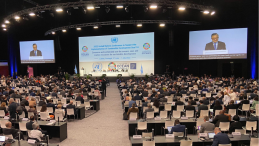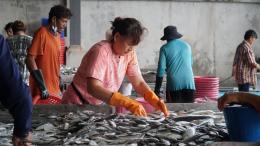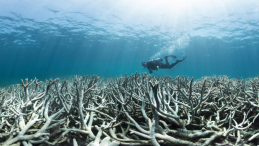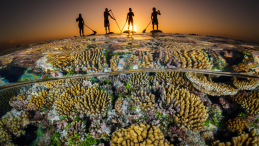On 9 June 2025 UNU-IAS organized a side event of the 2025 UN Ocean Conference in Nice, France. The online event explored how landscape approaches can advance SDG 14 (life below water) and foster socio-ecological resilience in seascapes, sharing case studies from members of the International Partnership for the Satoyama Initiative (IPSI).
Opening the session, Tsunao Watanabe (Visiting Research Fellow, UNU-IAS; Director, IPSI) underscored the importance of integrated approaches that consider diverse ecosystems and stakeholders to support sustainable economies and ocean recovery. Highlighting the connectivity between landscapes and seascapes, he noted that collaborative approaches are essential for achieving long-term sustainability goals and the vision of living in harmony with nature.
Suneetha M Subramanian (Research Fellow, UNU-IAS) introduced landscape approaches, an umbrella term to capture socio-ecological systems thinking that promotes resilience. Such integrated approaches are necessary to make more informed decisions related to land and sea uses, and communicate desirable actions that contribute to ocean sustainability. She highlighted the need to raise awareness of upstream-to-downstream connectivity, address trade-offs and foster ownership through customizable tools tailored to local contexts, motivating action for sustainable production and consumption.
IPSI members discussed practical applications of landscape approaches. Engin Yilmaz (Executive Director, Yolda Initiative) shared experiences from the Aegean Sea, where participatory science has driven collaborative action to prioritize marine biodiversity and sustainable small-scale fisheries. Paule Gros (CEO, BiodivEarth) highlighted multi-stakeholder governance, citing the examples of watershed councils on the islands of El Hierro in Spain and Gyaros in Greece. The councils utilize ecosystem services markets and peer learning to address governance and capacity gaps, as well as interventions such as sustainable tourism and eco-certification to balance conservation and livelihoods. Chen-Fa Wu (Professor, National Chung Hsing University) discussed stone weir restoration in Penghu, Taiwan, China, where a youth platform enhances seascape connectivity, fosters community trust and promotes youth engagement through innovative projects.
Savina Carluccio (Executive Director, International Coalition for Sustainable Infrastructure) showcased examples of nature-positive engineering, citing a shipping hub seagrass restoration project in Western Australia that revives ecosystems impacted by pollution.
Concluding the event, Domoina Rakotobe (Senior Officer, Capacity Building and Technical Assistance, HAC for Nature and People) emphasized the importance of capacity building and technical support in scaling up these initiatives. She noted that landscape approaches can be adapted to diverse regional contexts to accelerate progress towards a nature-positive future.




